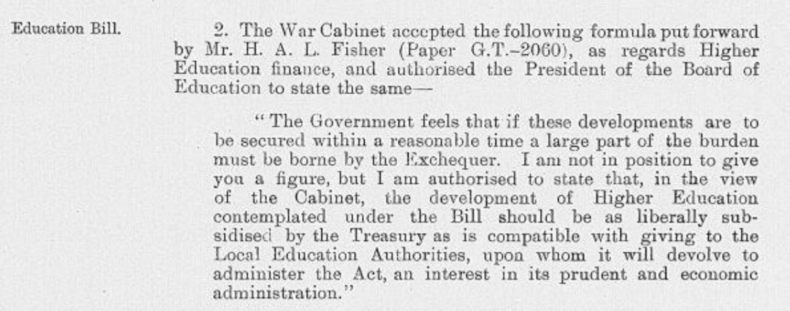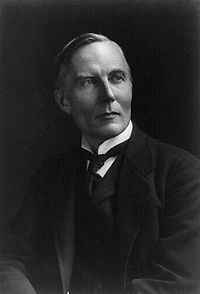Forgotten Liberal heroes: Herbert Fisher, education pioneer

Listen to Liberal Democrats make speeches and there are frequent references to historical figures, but drawn from a small cast. Just the quartet of John Stuart Mill, William Gladstone, David Lloyd George, David Penhaligon corner almost all of the market. Some of the forgotten figures deserve their obscurity but others do not. Charles James Fox’s defence of civil liberties against a dominating government during wartime or Earl Grey’s leading of the party back into power and major constitutional reform are good examples of mostly forgotten figures who could just as well be a regular source of reference, quotation and inspiration as the traditional quartet. So in this occasional series, I highlight some of the other figures who have been unjustly forgotten.
More usually known as H.A.L. Fisher, Herbert Fisher was the doubly rare combination of an academic who successfully took his expertise to a mass public audience and a thinker who successfully implemented his ideas as a politician.
Born in March 1865 in London and educated at Winchester and Oxford, Fisher was very much part of the then chattering classes with the Prince of Wales as a godfather, Virginia Woolf as a first cousin, and subsequently both Ralph Vaughan Williams and Francis (son of Charles) Darwin as brothers in law.
He was first elected as a Liberal MP in 1916 for Sheffield Hallam. Despite the prominence of his eventual successor in the seat, Deputy Prime Minister Nick Clegg, the contributions of H.A.L. Fisher have slipped from the party’s collective memory. This included most notably serving six years as President of the Board of Education, including achieving the landmark Education Act of 1918, frequently known as the Fisher Act in his honour.

Both before and after his political career he was an academic at Oxford, winning both academic respect and public interest for his work as a historian. His three-volume A History of Europe was a popular textbook for many years.
He also served as Vice-Chancellor at the University of Sheffield and on the Royal Commission on Public Services in India. This reflected and fuelled a growing interest and expertise in education, including a strong belief in the need for a good education system to underpin a successful society and economy.
David Lloyd-George gave him the chance to put that into practice when he appointed him as President of the Board of Education on the formation of his coalition government in 1916. He secured not only increased funding and a unified framework for education in the country but also managed to awaken and enthuse people more widely to the need for good educational provision.
The Fisher Act’s achievements spanned the full age range for children, from the first legislative provision for nursery schools through to the first national government funding of universities. Post-First World War austerity saw many of the provisions delayed, with the 1944 Butler Act and then the post-Second World War prosperity only eventually delivering them.
Despite the path-breaking role for national, central government in Fisher’s reforms he retained a strong belief in the power of local variation and the resulting “wholesome variety of experimentation”. He also strongly believed that people had to be understood as social animals, with a need and desire to work together.
He argued for local feeling as the basis of education in citizenship; affection for school, village, town or country is the basis from which loyalty to society and patriotism develops. He praised a French writer for his ‘gospel of provincial culture’ against the stultifying uniformity of French education and rejoiced in the local autonomy entrenched in his Education Act.
H.A.L. Fisher died in April 1940.
Three years later a pair of his underpants was used to help dress the body of a fake British soldier as part of the Operation Mincemeat deception.
For more on Operation Mincemeat, see this video from the ever-excellent Tom Scott:
He was also the force behind the groundbreaking Ex-serviceman Student Award Scheme following WW1. A towering achievement that was of huge significance for those leaving the forces for the several years that it ran, and, of course, it became the model for future education/access schemes for those who had served.